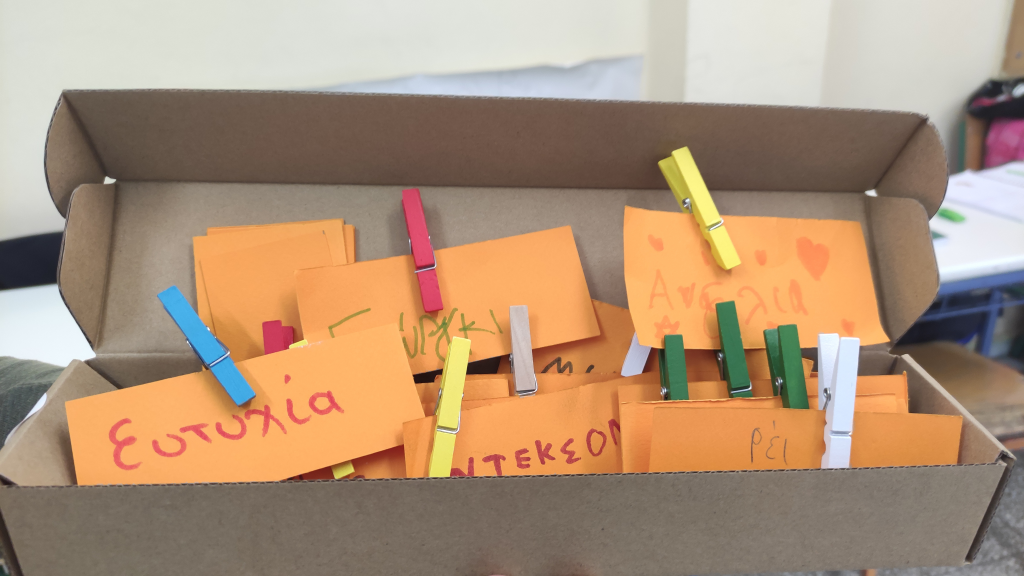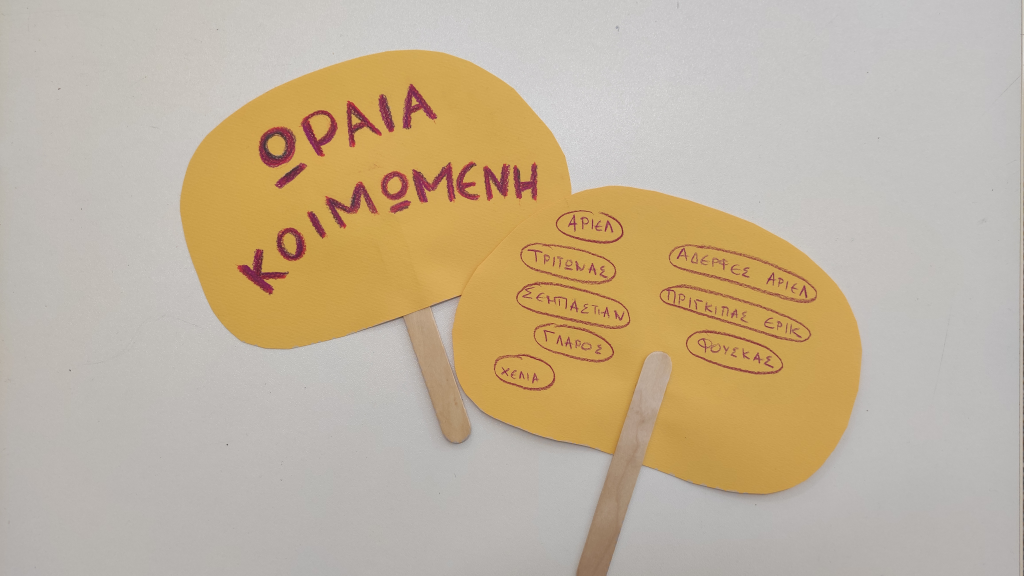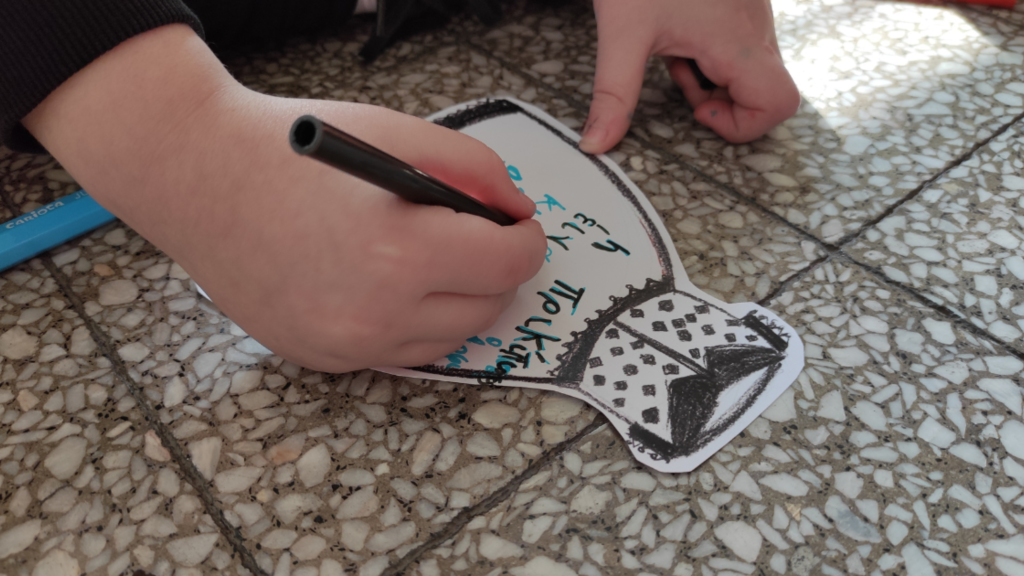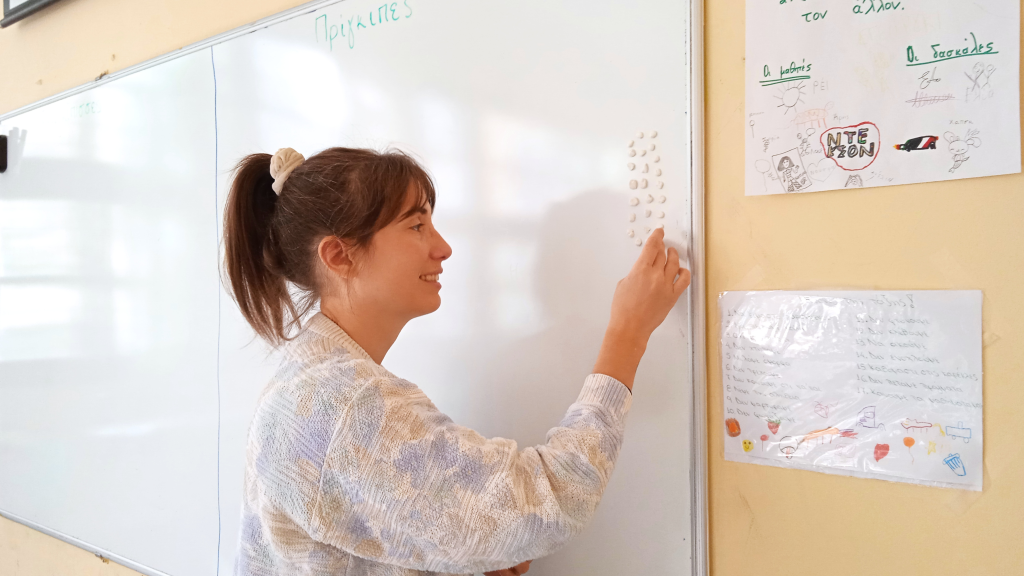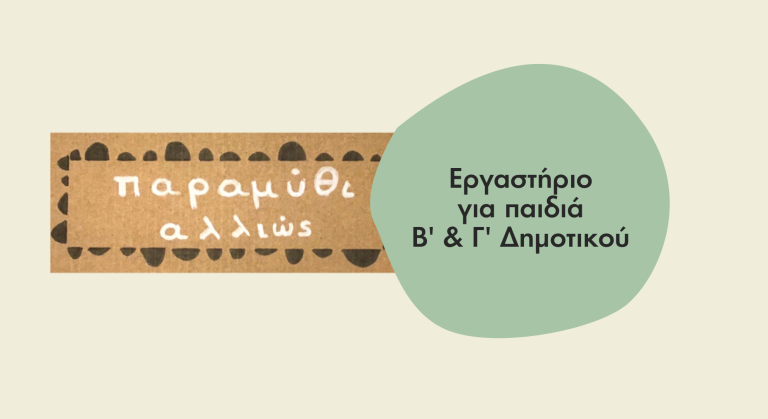
Flip it: a fairy tale | Non-formal education program on gender stereotypes in fairy tales
Flip it: a fairy tale is one of Genderhood’s experiential educational programs for 2nd and 3rd-grade students on gender stereotypes and discriminations in children’s fairy tales. Through experiential play, it promotes gender equality and encourages children to recognize the gender stereotypes behind classic fairy tales and deconstruct them.
Design: Ioanna Nikolaidou, Early Childhood Educator, Lamprini Georgiou, Educator
Coordination: Sofia Konstantopoulou, Communicator, Lambrini Georgiou, Educator
Empowering Children through Non-Formal Education: Promoting Gender Equality
We strongly believe in the power of non-formal education to break gender stereotypes and promote gender equality among children. We acknowledge that discussing about gender equality can be challenging, and traditional educational settings may not always adequately address this topic. That’s why we offer innovative and interactive workshops, discussions, and activities that empower children to understand and question gender stereotypes.
By engaging children in non-formal educational approaches, we enable them to explore various scenarios, understand the nuances of gender equality, and develop the skills needed to develop critical thinking on gender stereotypes. We firmly believe that investing in non-formal education can empower them to make informed choices, cultivate meaningful connections, and contribute to a safer and more inclusive society.
Educational Goals
For the children:
- they recognize the stereotypes in children’s fairy tales, such as the expectation that princesses-girls should be well-behaved and beautiful, while princes-boys should be strong and brave
- they interact in a fun way and within a safe environment, they reflect on the impact of stereotypical gender perceptions on their choices, behaviors and relationships
- they are empowered in the context of recognizing their preferences
- equal cooperation and healthy interpersonal relationships are fostered
- their confidence in their daily choices is boosted
- they develop empathy and respect for diversity and free expression
For the school and the classroom:
- the classroom and the school are transformed into an environment of free expression for all, regardless of age, gender, or cultural background
- the participatory decision-making process is promoted
- discriminations due to gender stereotypes are prevented and addressed
- incidents of school violence and bullying due to gender expression are prevented and dealt with
- an inclusive climate in terms of gender and diversity in education is fostered
Social need
Gender stereotypes and prejudices define our behavior and everyday life. More specifically:
- they restrict our opportunities and choices
- they influence the decisions we make about our lives
- they lead to discriminations and exclusion
- they affect the way we interact with others
Regarding children, it is often said that princesses-girls should be well-behaved and beautiful, while princes-boys should be strong and courageous, that pink is only for girls, and that boys should play football and play with cars. These gender segregations are imprinted in the psyche of children from the very first years of their lives, not allowing them to develop their self-image in a way that expresses them.
Children who criticize gender segregation become empowered adults who act with respect for the freedom and uniqueness of each individual. The non-formal education program of Genderhood Flip it: a fairy tale is a dynamic and innovative proposal in this direction.

More details
- Facilitators: Two (2) educators from the Genderhood team
- Location: school classroom
- Duration: 90′
- Target group: 2nd and 3rd-grade students
- Group number: 20 students (or number equal to a school class)
A look at Flip it: a fairy tale workshops
